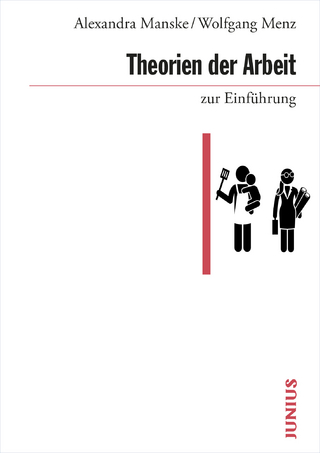
University Collegiality and the Erosion of Faculty Authority
Emerald Publishing Limited (Verlag)
978-1-80455-817-1 (ISBN)
Revealing the globalization, homogenization and variation that have come to characterize the collegiate system, this volume considers the future of the higher education system, and how we can consciously shape it moving forward.
The ebook edition of this title is Open Access and freely available to read online.
The higher education and research system faces a constant dilemma. On the one hand, research and higher education are run by autonomous, interrelated academic communities, often described as collegial governance. On the other hand, they are an instrument for the fulfillment of goals that are often external to the academic community. What, then, is the role of academics and academic knowledge in governance of higher education and research, and how does this reflect on and impact their aims and overall place in society?
Fostered through joint workshops and an open dialogue, this double volume of Research in the Sociology of Organizations develops a deeper understanding of collegiality, examining through a unique comparative perspective how it is translated and practiced in different settings across the world. Concentrating on challenges to collegiality and the erosion of faculty governance, this first installment analyzes global waves of reforms, ways in which various kinds of managerial modes of organization and control come to reshape universities, and how this intersects with the evolving missions of universities as institutions.
Revealing the globalization, homogenization and variation that have come to characterize the collegiate system, University Collegiality and the Erosion of Faculty Authority critically considers the state of and future of the higher education system, and how we can consciously shape it moving forward.
Kerstin Sahlin is Professor of Public Management in the Department of Business Studies at Uppsala University, Sweden. Ulla Eriksson-Zetterquist is Professor of Management Studies in the Department of Business Administration, School of Business, Economics, and Law, University of Gothenburg, Sweden.
Introduction: University Collegiality and the Erosion of Faculty Authority; Kerstin Sahlin and Ulla Eriksson-Zetterquist
Section 1. Collegiality and the Rise of Organizational Actors
Chapter 1. Governing Research. New Forms of Competition and Cooperation in Academia; Anna Kosmützky and Georg Krücken
Chapter 2. The Managerialization of Higher Education in Germany and Its Consequences: Changes in Job Advertisements for Professorships in German Universities, 1990 to 2010; Lisa-Maria Gerhardt, Jan Goldenstein, Simon Oertel, Philipp Poschmann, and Peter Walgenbach
Chapter 3. Globalization of Universities as Organizational Actors?; Seungah S. Lee and Francisco O. Ramirez
Chapter 4. A Slow Form of Governance? Collegial Organization and Temporal Synchronization in the Context of Swedish University Reforms; Hampus Östh Gustafsson
Chapter 5. The Construction of the University as an Organizational Actor and Its Consequences for the University as an Institution: Reflections on the Case of Australia; Hokyu Hwang
Section 2. Collegiality in a Political Context
Chapter 6. Collegiality and Communication: This Time It’s Personal; Francois van Schalkwyk and Nico Cloete
Chapter 7. Governance in Chinese Universities; Wen Wen and Simon Marginson
Chapter 8. The Social Creation of Temporary Academic Positions in Chile, Colombia, Germany and the US; Pedro Pineda
| Erscheinungsdatum | 02.11.2023 |
|---|---|
| Reihe/Serie | Research in the Sociology of Organizations |
| Verlagsort | Bingley |
| Sprache | englisch |
| Maße | 152 x 229 mm |
| Gewicht | 376 g |
| Themenwelt | Sozialwissenschaften ► Soziologie ► Mikrosoziologie |
| Wirtschaft ► Betriebswirtschaft / Management ► Planung / Organisation | |
| ISBN-10 | 1-80455-817-6 / 1804558176 |
| ISBN-13 | 978-1-80455-817-1 / 9781804558171 |
| Zustand | Neuware |
| Haben Sie eine Frage zum Produkt? |
aus dem Bereich


